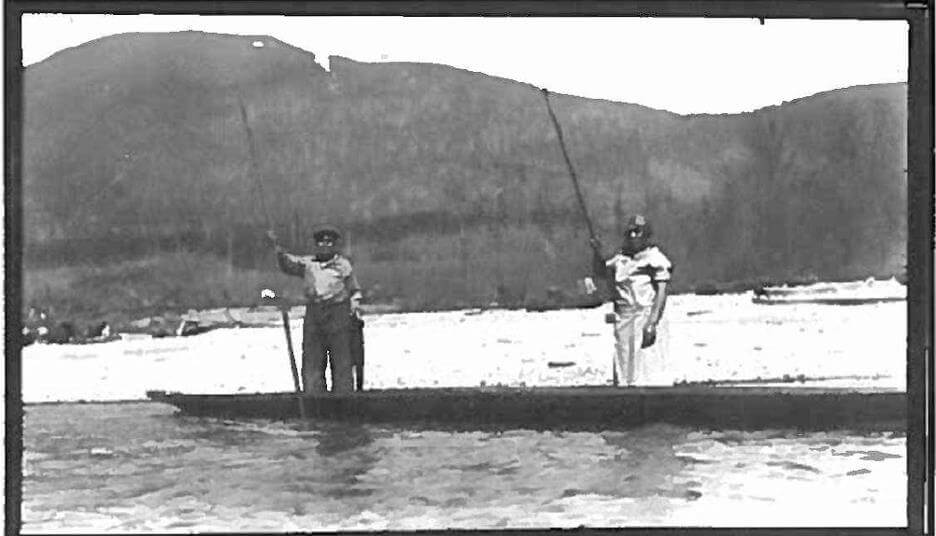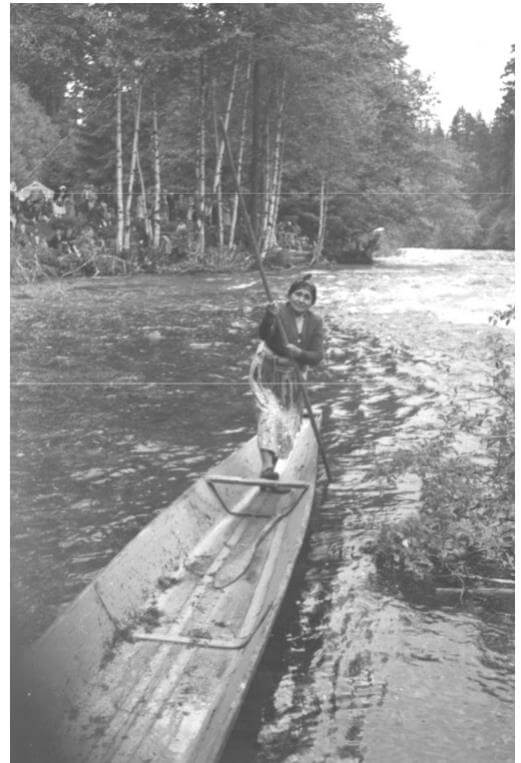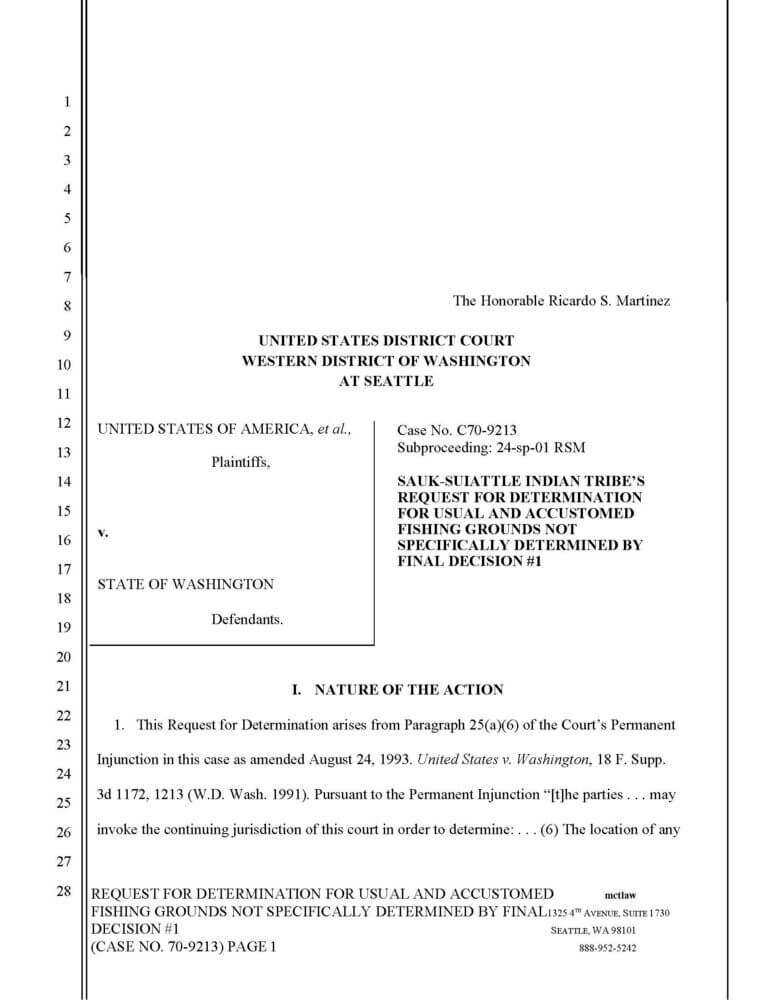Sauk-Suiattle Tribe Represented by Attorneys at mctlaw File Suit to Reclaim Ancestral Fishing Rights in Puget Sound Area
SEATTLE, WA (September 17, 2024) — The Sauk-Suiattle Indian Tribe, with legal representation from the attorneys at mctlaw, is making a significant legal push to reclaim its customary fishing rights in Washington’s Puget Sound and surrounding freshwater streams.
The Tribe has asked the federal court to reaffirm the rights they believe have been wrongfully denied for decades, taking their case to the same federal district court that governs treaty fishing rights under the landmark U.S. v. Washington decision.
The Tribe’s legal team, led by Indian Law attorney Kehl Van Winkle from mctlaw, recently filed an action seeking to expand the boundaries of their “usual and accustomed” fishing areas, a key component of the rights guaranteed in the 1855 Treaty of Point Elliott.
On September 16, 2024, Judge Ricardo S. Martinez agreed to hear the Tribe’s case, giving the Tribe the opportunity to present evidence that they historically fished in areas beyond those previously recognized.
Restoring the Sauk-Suiattle Indian Tribe’s Heritage
For decades, the Tribe lacked the financial resources to mount a legal challenge or present the extensive historical and anthropological evidence that could have supported their case.
However, with the help of mctlaw and anthropologist Dr. Peter Whiteley from the American Museum of Natural History, the Tribe now has the expertise to show that their ancestors fished extensively in the disputed areas, including the Skagit and Baker Rivers, and parts of Puget Sound.
“Our team is focused on presenting this historical evidence and ensuring that the Sauk-Suiattle people get their day in court,” said Van Winkle. “This isn’t about taking away anyone’s rights to fish in those areas—it’s about reclaiming what was lost.”

Sauk River
The Historical Struggle for Recognition
In 1974, Judge George Boldt ruled on the fishing rights of many tribes under the Treaty of Point Elliott. This landmark decision recognized the Sauk-Suiattle’s fishing rights in areas like the Sauk River, the Suiattle River, and other tributaries. However, the ruling failed to include downstream waters such as the Skagit and Baker Rivers, as well as marine waters in Puget Sound. Although Judge Boldt acknowledged that the Sauk-Suiattle traveled to saltwater areas to fish, the Tribe’s full fishing grounds were never formally recognized.
A Renewed Fight for Justice
The Tribe’s renewed legal efforts come at a time when the preservation of cultural and environmental heritage is increasingly in the spotlight. Vice Chairman Nino Maltos, Sr., emphasized that this case is about fairness, not overreach. “We just want the right to fish where our ancestors fished,” he said.

Martha Tommy fishing
The Path Forward for
The Sauk-Suiattle’s legal battle is far from over, but with the expertise of mctlaw, they are poised to make a strong case for the expansion of their recognized fishing rights. mctlaw’s attorneys are well-versed in both tribal law and federal treaty rights, giving the Tribe a solid foundation as they pursue this historic claim.
“This case is about restoring what was taken and giving future generations of Sauk-Suiattle people the ability to fish in the waters their ancestors depended on,” said Van Winkle. “We are proud to stand by them in this fight for justice.”
_______
Questions regarding the lawsuit can be directed to mctlaw’s Kehl Van Winkle at (206) 752-1550.
For more information on the Sauk-Suiattle Indian Tribe and their efforts, contact Tribal Chairman Nino Maltos II at (360) 436-0131.


